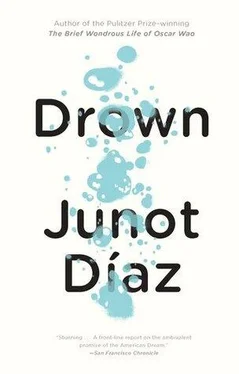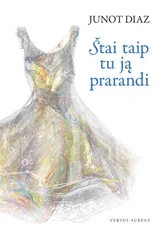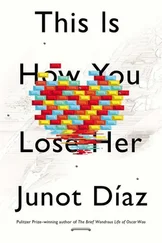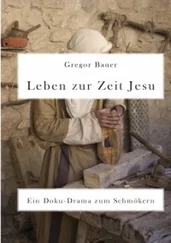Para mi madre,
Virtudes Díaz
The fact that I
am writing to you
in English
already falsifies what I
wanted to tell you.
My subject:
how to explain to you that I
don’t belong to English
though I belong nowhere else
Gustavo Pérez Firmat
1.
We were on our wayto the colmado for an errand, a beer for my tío, when Rafa stood still and tilted his head, as if listening to a message I couldn’t hear, something beamed in from afar. We were close to the colmado; you could hear the music and the gentle clop of drunken voices. I was nine that summer, but my brother was twelve, and he was the one who wanted to see Ysrael, who looked out towards Barbacoa and said, We should pay that kid a visit.
2.
Mami shipped me and Rafa out to the campo every summer. She worked long hours at the chocolate factory and didn’t have the time or the energy to look after us during the months school was out. Rafa and I stayed with our tíos, in a small wooden house just outside Ocoa; rosebushes blazed around the yard like compass points and the mango trees spread out deep blankets of shade where we could rest and play dominos, but the campo was nothing like our barrio in Santo Domingo. In the campo there was nothing to do, no one to see. You didn’t get television or electricity and Rafa, who was older and expected more, woke up every morning pissy and dissatisfied. He stood out on the patio in his shorts and looked out over the mountains, at the mists that gathered like water, at the brucal trees that blazed like fires on the mountain. This, he said, is shit.
Worse than shit, I said.
Yeah, he said, and when I get home, I’m going to go crazy — chinga all my girls and then chinga everyone else’s. I won’t stop dancing either. I’m going to be like those guys in the record books who dance four or five days straight.
Tío Miguel had chores for us (mostly we chopped wood for the smokehouse and brought water up from the river) but we finished these as easy as we threw off our shirts, the rest of the day punching us in the face. We caught jaivas in the streams and spent hours walking across the valley to see girls who were never there; we set traps for jurones we never caught and toughened up our roosters with pails of cold water. We worked hard at keeping busy.
I didn’t mind these summers, wouldn’t forget them the way Rafa would. Back home in the Capital, Rafa had his own friends, a bunch of tígueres who liked to knock down our neighbors and who scrawled chocha and toto on walls and curbs. Back in the Capital he rarely said anything to me except Shut up, pendejo. Unless, of course, he was mad and then he had about five hundred routines he liked to lay on me. Most of them had to do with my complexion, my hair, the size of my lips. It’s the Haitian, he’d say to his buddies. Hey Señor Haitian, Mami found you on the border and only took you in because she felt sorry for you.
If I was stupid enough to mouth off to him — about the hair that was growing on his back or the time the tip of his pinga had swollen to the size of a lemon — he pounded the hell out of me and then I would run as far as I could. In the Capital Rafa and I fought so much that our neighbors took to smashing broomsticks over us to break it up, but in the campo it wasn’t like that. In the campo we were friends.
The summer I was nine, Rafa shot whole afternoons talking about whatever chica he was getting with — not that the campo girls gave up ass like the girls back in the Capital but kissing them, he told me, was pretty much the same. He’d take the campo girls down to the dams to swim and if he was lucky they let him put it in their mouths or in their asses. He’d done La Muda that way for almost a month before her parents heard about it and barred her from leaving the house forever.
He wore the same outfit when he went to see these girls, a shirt and pants that my father had sent him from the States last Christmas. I always followed Rafa, trying to convince him to let me tag along.
Go home, he’d say. I’ll be back in a few hours.
I’ll walk you.
I don’t need you to walk me anywhere. Just wait for me.
If I kept on he’d punch me in the shoulder and walk on until what was left of him was the color of his shirt filling in the spaces between the leaves. Something inside of me would sag like a sail. I would yell his name and he’d hurry on, the ferns and branches and flower pods trembling in his wake.
Later, while we were in bed listening to the rats on the zinc roof he might tell me what he’d done. I’d hear about tetas and chochas and leche and he’d talk without looking over at me. There was a girl he’d gone to see, half-Haitian, but he ended up with her sister. Another who believed she wouldn’t get pregnant if she drank a Coca-Cola afterwards. And one who was pregnant and didn’t give a damn about anything. His hands were behind his head and his feet were crossed at the ankles. He was handsome and spoke out of the corner of his mouth. I was too young to understand most of what he said, but I listened to him anyway, in case these things might be useful in the future.
3.
Ysrael was a different story. Even on this side of Ocoa people had heard of him, how when he was a baby a pig had eaten his face off, skinned it like an orange. He was something to talk about, a name that set the kids to screaming, worse than el Cuco or la Vieja Calusa.
I’d seen Ysrael my first time the year before, right after the dams were finished. I was in town, farting around, when a single-prop plane swept in across the sky. A door opened on the fuselage and a man began to kick out tall bundles that exploded into thousands of leaflets as soon as the wind got to them. They came down as slow as butterfly blossoms and were posters of wrestlers, not politicians, and that’s when us kids started shouting at each other. Usually the planes only covered Ocoa, but if extras had been printed the nearby towns would also get leaflets, especially if the match or the election was a big one. The paper would cling to the trees for weeks.
I spotted Ysrael in an alley, stooping over a stack of leaflets that had not come undone from its thin cord. He was wearing his mask.
What are you doing? I said.
What do you think I’m doing? he answered.
He picked up the bundle and ran down the alley. Some other boys saw him and wheeled around, howling but, coño, could he run.
That’s Ysrael! I was told. He’s ugly and he’s got a cousin around here but we don’t like him either. And that face of his would make you sick!
I told my brother later when I got home, and he sat up in his bed. Could you see under the mask?
Not really.
That’s something we got to check out.
I hear it’s bad.
The night before we went to look for him my brother couldn’t sleep. He kicked at the mosquito netting and I could hear the mesh tearing just a little. My tío was yukking it up with his buddies in the yard. One of Tío’s roosters had won big the day before and he was thinking of taking it to the Capital.
People around here don’t bet worth a damn, he was saying. Your average campesino only bets big when he feels lucky and how many of them feel lucky?
You’re feeling lucky right now.
You’re damn right about that. That’s why I have to find myself some big spenders.
I wonder how much of Ysrael’s face is gone, Rafa said.
He has his eyes.
That’s a lot, he assured me. You’d think eyes would be the first thing a pig would go for. Eyes are soft. And salty.
Читать дальше












